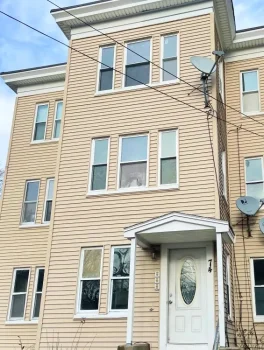
In this kind of house, you simply pay a monthly fee for rent, maintain attendance in recovery groups, stay sober, and participate in household duties. Like any lifestyle change, Sobriety requires developing new habits and routines. An extended stay offers the time and repetition needed to solidify these habits until they become a natural part of daily life. These relationships often develop into lifelong bonds of friendship and support, vital for maintaining sobriety in the long run.

What Happens if You Relapse in a Sober Living Home?
- Both of them also offer access to resources that can help you with early recovery.
- For example, sober living houses may require residents to be home by a certain time or to go to work during the day.
- However, each level of sober living home has different rules and restrictions.
- Moreover, sober living homes often connect residents with a variety of recovery resources.
- There are also specific types of sober living homes that cater to your gender, age, and in some cases, profession.
- So he and a group of friends who’d also just completed the program decided to create a sober house of their own, a place where they could live safely together, substance-free.
It’s a buffer that provides an opportunity to practice sobriety skills in a less intensive yet still structured environment before facing the broader challenges of the outside world. Sober living homes encourage participation in group meetings, household tasks, and sometimes, holistic practices such as meditation and mindfulness. Individuals in sober homes sober house share a common goal of long-term sobriety and wellness. Members of the sober living community support and motivate each other to avoid relapsing into past behaviors. Here you will find information about sober living houses, what they do, and how you, or your loved one, can take full advantage of the support on offer and enjoy a life free from addiction.
Welcome to Design for Recovery
Recovery residences are less expensive than living at a rehabilitation facility or detox center because fewer services are offered. But many sober homes require residents to attend support group meetings or participate in 12-step programs or outpatient treatment, which may be an additional cost for residents to consider. A sober living house provides individuals recovering from substance use disorder with a safe place to live before they’re ready to return to their former lives. There are thousands of sober living homes in the U.S., according to the National Association of Recovery Residences (NARR). However, sober living homes differ depending on the residents they accept and the rules they maintain.
What Are the Common Rules at a Sober Living Home?
The Minnesota Model was also developed during the 1950’s and formed the basis of the social model for recovery, which is foundational to modern-day sober living homes. The program used many of the same principles as Alcoholics Anonymous and soon became increasingly professionalized. This model influenced different versions of residential inpatient facilities that can be found today. Since the sober living https://ecosoberhouse.com/ home industry has been undergoing many changes, many people may not be aware of the options, and it can be difficult to find a quality sober living home if you don’t know where to look. We created this guide to explain the options for sober living homes, and to help you decide if they are right for you. Additionally, we will provide resources to help locate a certified recovery residence near you.
- Addressing these practical aspects of life reduces the stress and anxiety that can often trigger relapse.
- A small association fee is often required to maintain membership in the affiliate’s network.
- Sober houses are available to help these people take the final step in their recovery process and helping them learn how to live their lives again without the substance abuse.
- Sober living homes are more than just a place to stay; they’re communities aimed at fostering healing and growth.
- They will be able to discuss the best available options and can help locate nearby locations.
How to Find the Perfect Sober Living Home
But, unfortunately, even for those who have housing, many leave treatment only to return to living environments that are not recovery focused, where others use substances, or where substances are accessible. In the journey towards sobriety, the ambiance and the support system around you play pivotal roles. Sober living homes understand this fundamental need and strive to provide an environment that not only supports but enhances your recovery process. Sober living homes can be beneficial for those who are transitioning from inpatient treatment, but they may be too far ahead in the process for many who are looking to start their recovery journey.
- As operations director for St. Paul Spirit House, a for-profit organization with four east-metro sober homes, Aric Smedstad has plenty of opinions about how homes for people in early recovery should be run.
- Sober housing is where most recovering addicts go after completing an inpatient or drug rehabilitation program.
- Sober transitional living spaces like sober homes can help you by limiting your access to drugs and alcohol.
- You’ll get a 100% custom plan, then daily texts to track your progress and help you stay on target.
- It provides a safe environment for people to focus on their recovery after substance abuse treatment.







